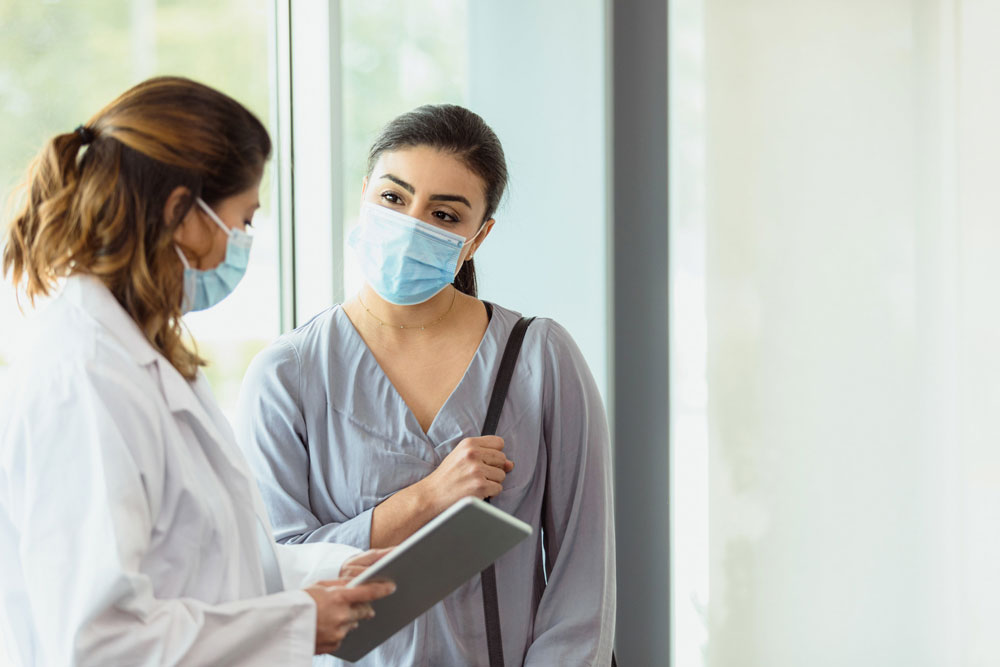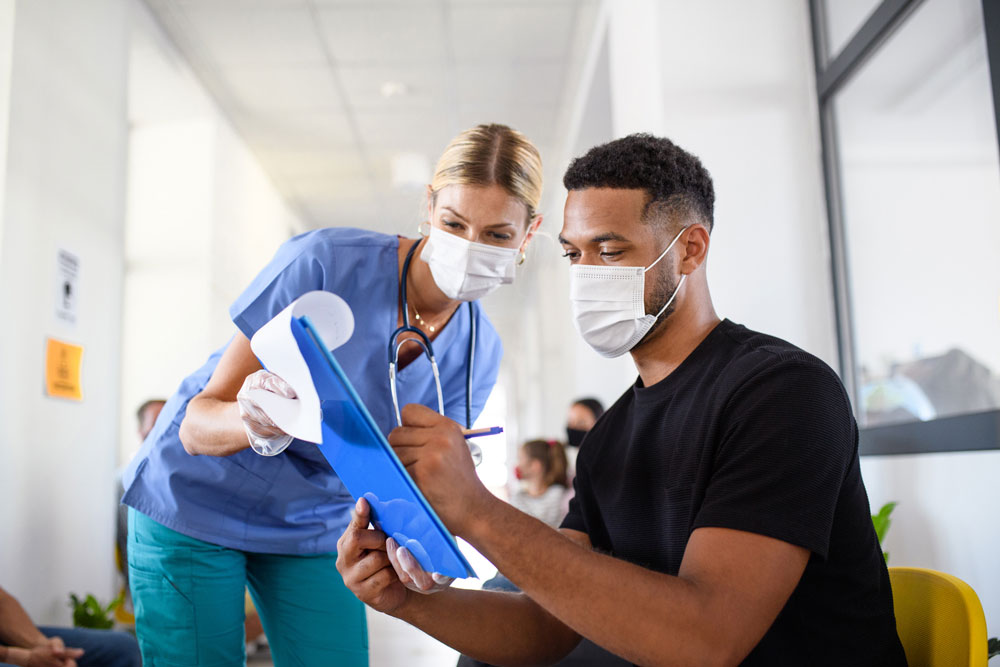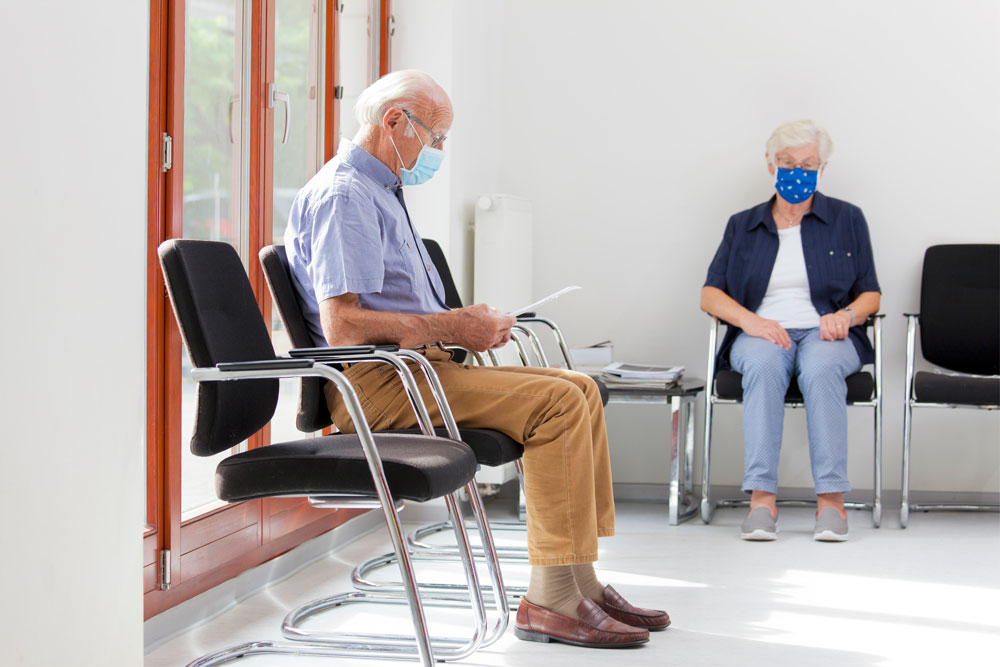Get Your Cancer Screening
Feb. 4, 2022

Last year, the number of breast cancer and cervical cancer screenings dropped significantly. Other cancer screenings were down, as well. This trend causes concern in the medical community.
In June 2021, the Centers for Disease Control and Prevention* reported screenings for breast and cervical cancers had dropped by 87 percent and 84 percent respectively compared to 2020 data. Screenings are down as some people put off routine care during the pandemic and health systems delayed regular care. But doctors know delaying care can have a significant impact on health.
“Early screening is a way to detect certain cancers even before they become cancer. The concern with the drop in screenings is that we might be missing treating people early before potential cancers develop into a more significant illness burden,” says Dr. Matt Bartels, chief medical officer for BlueCross BlueShield of South Carolina.
Routine cancer screenings are important for detecting potential cancers in people who are not symptomatic. For example, when someone over age 50 goes to get a routine colonoscopy and a polyp is found, that polyp might not be cancer yet. Doctors would be able to determine if the polyp is precancerous and remove it.
“You can catch things at a much earlier stage and treat them to prevent the progression to cancer, or you catch cancer early and it's localized. Any intervention at this point is likely to be less invasive and much less burdensome for the patient,” Bartels says.
The medical community is concerned the cancers that would have been caught in routine screenings will advance if they are not detected and treated early. This could result in a spike in advanced cancer diagnoses in the future. Some studies show an increase in deaths because of this decline in screenings.
“Cancer screening is the best, most effective way to catch and treat certain cancers early. In many circumstances if you wait until you have symptoms, it could be too late,” Bartels says.
He says South Carolinians shouldn’t delay getting screened as recommended by their doctors or health care providers because of COVID-19 fears. Health care facilities are taking precautions to prevent the spread of COVID-19, and patients should wear masks when going in for screening.
“Don’t wait. Don’t keep putting it off,” Bartels says.
What screenings do you need? The following are recommendations from the U.S. Preventive Services Task Force*:
- Breast cancer: Women ages 50 to 74 years old who are at average risk for breast cancer should get a mammogram every two years. Women ages 40 to 49 should talk to their doctors about when to start and how often to get a mammogram. You may need to be tested earlier if you are at increased risk for breast cancer.
- Colorectal cancer: Adults ages 45 to 75 should get screened for colorectal cancer. A colonoscopy is the gold standard for detecting this type of cancer. You may need to be tested earlier or more often if you are at increased risk.
- Cervical cancer: Women should start getting Pap tests at age 21. If your Pap test is normal, your doctor may tell you to wait three years until the next test. Women ages 30 to 65 should talk with their doctors about Pap and HPV tests to determine the right test and how often it is needed to detect cervical cancer. Women over 65 may not need to be screened anymore. A doctor can discuss a recommendation for you based on your history.
- Lung cancer: The task force recommends an annual screening for lung cancer in adults ages 50 to 80 who have a 20 pack-year smoking history and who currently smoke or those who have quit smoking within the past 15 years.
“Check in with your doctor or health care provider in person or through telehealth,” says Bartels. “Your primary care doctor can help make sure you are getting the screening you need when you need it.”
*The Centers for Disease Control and Prevention, Science magazine and the U.S. Preventive Services Task Force are independent organizations that offer health information you may find helpful.
Related Reading:
 How to Talk to Your Doctor
How to Talk to Your Doctor
Starting a conversation with your doctor or health care provider can be intimidating. It is important, though, that you feel comfortable asking questions and taking an active role in your medical care. Here's a few ways to be prepared and get the conversation started.
Read More Why You Should Have a Primary Care Provider
Why You Should Have a Primary Care Provider
As many as 25 percent of Americans do not have a primary care provider (PCP). One BlueCross doctor discusses why South Carolinians should have a PCP and what a regular care provider can offer to keep people healthy.
Read More Oncologist: Follow Up Cancer Screenings Now
Oncologist: Follow Up Cancer Screenings Now
The coronavirus pandemic has affected every facet of daily lives including health care choices. Studies have shown a significant decrease in the number of people getting cancer screenings. Dr. Kashyap Patel, an oncologist, discusses the importance of keeping up with cancer screenings during the pandemic.
Read More



















